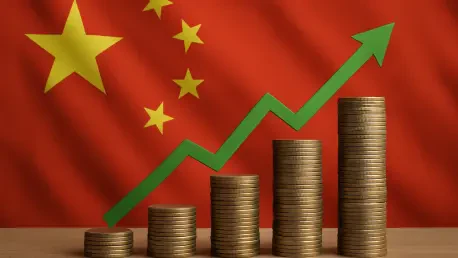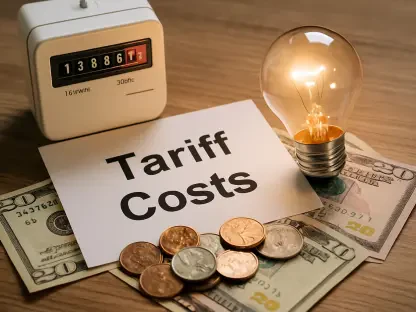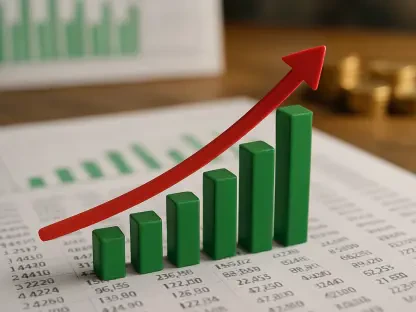In a world grappling with economic uncertainties and complex global challenges, a powerful narrative emerges from a recent address by the Chinese Ambassador to Dominica, delivered during a significant diplomatic event at the Chinese Embassy. This speech, marking a milestone celebration, underscored China’s pivotal role in shaping the trajectory of international markets and development. Far from being just another diplomatic formality, the ambassador’s remarks painted a vivid picture of a nation not only driving economic progress but also championing innovation and sustainability on a global scale. The message was clear: China’s influence extends beyond borders, offering both opportunities and solutions to pressing worldwide issues. This perspective invites a deeper exploration into how such a position impacts economies, technologies, and environmental strategies across the globe, particularly for smaller nations seeking growth and stability in an interconnected world.
Economic Powerhouse and Global Impact
Sustaining Growth Amid Challenges
The ambassador’s address highlighted China’s remarkable economic resilience, positioning it as a cornerstone of global financial stability at a time when many nations face uncertainty. Despite complex international hurdles, China has adopted a strategy of high-quality development, emphasizing comprehensive reforms and broader institutional openness. Current projections estimate an economic output reaching an impressive $19.5 trillion, which translates to roughly 30% of worldwide economic growth. This staggering figure reinforces China’s status as the leading trader of goods globally, a testament to policies that prioritize expansion and adaptability. Such dominance in trade and output suggests that fluctuations in Chinese markets can ripple across continents, influencing everything from commodity prices to investment flows. For smaller economies, this presents both a challenge to keep pace and an opportunity to align with a titan of industry for mutual benefit, shaping their own fiscal strategies in response to these dynamics.
Shaping International Markets
Beyond sheer numbers, China’s economic influence is reshaping the very structure of international markets through strategic initiatives and robust trade networks. The ambassador emphasized that China’s growth is not a solitary achievement but a catalyst for global economic activity, providing a stabilizing force amid volatility. This is particularly evident in how Chinese policies encourage foreign investment and foster partnerships that extend benefits to developing regions. By maintaining a significant share of global trade, China sets benchmarks for pricing and supply chains that affect industries worldwide, from manufacturing to agriculture. Smaller nations, often at the mercy of larger economic powers, find in China a partner capable of offering infrastructure support and market access. This relationship, while complex, underscores a shift toward a more interconnected global economy where China’s decisions can dictate trends, pushing other countries to adapt or risk being left behind in a rapidly evolving landscape.
Innovation, Sustainability, and Collaboration
Pioneering Technological Frontiers
Turning to the realm of innovation, the ambassador shed light on China’s ambitious strides in emerging technologies, which are poised to redefine global economic expansion. Fields such as artificial intelligence, biomanufacturing, quantum technology, and the low-altitude economy are at the forefront of this transformation, with China investing heavily to lead in these sectors. These advancements are not merely domestic achievements; they create new markets and opportunities for international collaboration, allowing other nations to tap into cutting-edge tools and systems. The ripple effect of such progress means that businesses and governments worldwide must either compete or cooperate to integrate these technologies into their own frameworks. This drive for innovation signals a future where technological leadership could become as crucial as economic output in determining global influence, positioning China as a key player in setting the pace for industrial and digital revolutions.
Commitment to Green Development
Equally compelling was the focus on environmental sustainability, with China outlining bold targets to balance economic growth with ecological responsibility. The ambassador detailed plans to reduce greenhouse gas emissions significantly by 2035, aiming for a 7% to 10% drop from peak levels, while boosting non-fossil fuel energy consumption to over 30%. Efforts to expand wind and solar power capacity, alongside initiatives to mainstream new energy vehicles and enhance forest stock volume, reflect a comprehensive approach to green development. These commitments are not just promises but actionable strategies, including expanding the national carbon emissions trading market and fostering a climate-adaptive society. Such steps demonstrate a recognition that economic progress cannot come at the expense of the planet, offering a model for how large economies can pivot toward sustainability while still driving growth, potentially inspiring other nations to follow suit with similar urgency.
Building Partnerships with Smaller Nations
The speech also emphasized China’s dedication to international cooperation, particularly with Small Island Developing States facing unique climate vulnerabilities. A willingness to collaborate on environmental challenges was articulated, with a specific nod to working alongside Dominica to promote harmony between humanity and nature. This cooperative stance extends beyond rhetoric, as upcoming strategic planning sessions within China are expected to outline further opportunities for global partnerships over the next few years. By inviting smaller nations to share in the benefits of modernization, China positions itself as a partner rather than a distant power, fostering mutual growth through shared goals. This approach highlights a diplomatic strategy that values inclusivity, suggesting that global challenges like climate change require collective action, where even the smallest players have a role alongside economic giants, creating a framework for sustainable development that prioritizes shared benefits.









